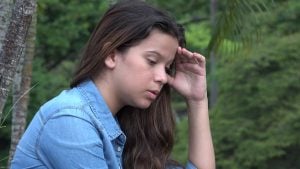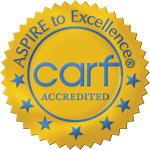The winter holidays are upon us, and for many people, that means more time to spend with family. That goes especially for parents with school-age children on winter break or older ones returning from college. It’s true that this can be a hectic time of the year, but many parents will want to carve out some quality time to connect with their kids. Although it might seem daunting to discuss addiction with your kids, the extra time over the holidays provides an opportunity to do just that.
Why use the holidays to discuss addiction?
So why bring up a subject that might make your kids uncomfortable, however briefly? For starters, your kids have probably already heard some things about the ongoing national addiction epidemic. The crisis of opioid and heroin use and drug overdose regularly makes headlines, and social-media-savvy teens and young adults are probably aware of the national discussion on the problem of addiction.
This is an opportunity to begin to discuss addiction with your kids. Having the subject so extensively covered in media makes it a little easier to have an unforced discussion about the risks of drug use. You might broach the topic simply by asking your adolescent children what they think about all the stories in the media about an addiction epidemic or the increases in prescription opioid and heroin use.
Even if it still isn’t easy, it is urgent and important. While many communities are trying to expand prevention and treatment resources, we’re still very much in the middle of a crisis of addiction. In the last decade the number of young adults (18-25) using heroin has doubled. Addiction does not discriminate by age, and people are encountering deadly drugs at ever younger ages.
And the risks are far worse than many people know. Drug overdose rates are still rising and becoming more fatal with extremely potent synthetic opioids like fentanyl on the streets. Those who use injection drugs often don’t realize the other kinds of health risks they’re exposing themselves to, like hepatitis or bacterial infections targeting vital organs. It’s dangerous stuff that can dramatically alter a young person’s life. So why not use an opportunity like the Christmas break to talk to your kids about drug use?
While any starter conversation opening up the topic of drugs and the addiction epidemic would be beneficial, let’s look at three specific reasons that some people might find it even more urgent to have this discussion.
If your family has a history of addiction
If there is a history of drug abuse or addiction in your family, there’s every reason to make sure your kids know the risks of addiction. That’s because they might have a predisposition toward addiction. Addiction is a brain disease, and inherited genetic factors can make a person more likely to get addicted if they use drugs. Having a family history of addiction makes it vital to know a little bit about the science of addiction. If you’re new to the subject, take a look at our post about why addiction is a brain disease—and don’t forget to share what you learned with your kids. Addiction education is one of the most important aspects of both prevention and treatment.
If you’ve seen some signs of potential addiction
The conversation we’re talking about is an urgent one if you’ve already seen some signs of a potential drug problem in your teen or young adult. This might be a reason not only to talk about addiction, but also to start thinking about treatment options. But let’s back up a bit. Are you confident that you would know if your kid was starting to abuse drugs or alcohol? Here are a couple of signs that something might be up:
- Behavioral changes: Any drastic changes in your kid’s behavior could be an indication of a developing drug problem. Some examples include changing friend groups, spending more time outside the home (and being vague about the details), falling school grades, or an inability to meet other responsibilities. Remember that these don’t necessarily equal a drug problem; rather, they can be signs of a potential problem.
- Personality or mood changes: Because addiction causes changes in the brain, you could expect to see changes in how your teen feels or expresses themselves under an addiction. Young people with a drug problem might seem more moody, angry, agitated, anxious, or depressed.
If your kid has had a past problem with drug use or addiction, it’s also a good idea to be aware of signs of increased risk of drug overdose. You can read about those signs in the previous Stepworks post, “Drug Overdose: 4 Signs Your Loved One Could Be at Risk.”
If your kid is entering a new environment
Transitions like entering high school or college, living on one’s own for the first time, moving to a new city, or starting a new job can expose your kids to new risks. There are a few reasons why, and they’re probably pretty obvious. New social environments might mean more exposure to recreational drug use. That’s a common anxiety that parents have when sending their kids off to college. But it’s increasingly a concern even for those entering high school or middle school.
In addition, the stress that can accompany major life changes can also make your kids more susceptible to drug use. Young people struggling to adapt to new living, educational, or work settings might turn to drug or alcohol use in an attempt to escape the stress. Take advantage of the holidays to check in with your kids to see how they’re coping with the changes in their lives. Make sure they’re aware of the resources available to them to help with stress, too. For example, college students can usually go to their campus student health center for physical or emotional health needs.
Have a conversation about addiction. Any conversation.
The kind of conversation to have with your kids over the holidays depends on what they’re experiencing. The three scenarios we’ve talked about in this post can provide some direction. However, the really important takeaway is to have some kind of conversation about drug use and addiction. Stigma still makes it difficult for some people to discuss addiction, so think of the holidays as an opening to check in on this important subject with your kids. When you know what’s going on in your kids’ lives, it’s a lot easier to spot a problem with addiction as it’s developing. Helping your kids avoid falling victim to the prescription opioid and heroin epidemic is a gift you can’t put a price on.



